Subject Spotlight: How to Learn Maths in an Interesting Way?
Have you ever wondered how our expert teachers plan and deliver lessons that help students reach their full academic potential? Last time we posted our Subject Spotlights series of Business, English A, English B, chemistry, physics, drama, CS, Geography and music. Now let's see how our teaching maths makes a difference to our students!
This time we interviewed Ms Betty Lutterodt, Head of Mathematics at Senior School, who gave us some insights into the Maths Studies at our college.
Hello, Ms Lutterodt! First of all could you please introduce yourself and your teaching background?
I have accumulated over a decade of extensive experience as a Mathematics educator. My journey began with completing a bachelor's degree in Mathematics at Queen Mary University of London, followed by a teaching training program at Kingston University in the UK. Initially, I embarked on a career in the banking industry in London but soon discovered my true calling in education. While pursuing my Mathematics degree, I concurrently served as a part-time teaching assistant, which further deepened my passion for teaching and learning. Witnessing students achieve their goals and progress brings me great satisfaction, ultimately leading me to transition into teaching. After several years of teaching GCSE and A-Level in esteemed academic schools in the UK, I decided to embark on a new chapter by joining Dulwich College Suzhou (DCSZ). I am currently in my fourth year of teaching at DCSZ.
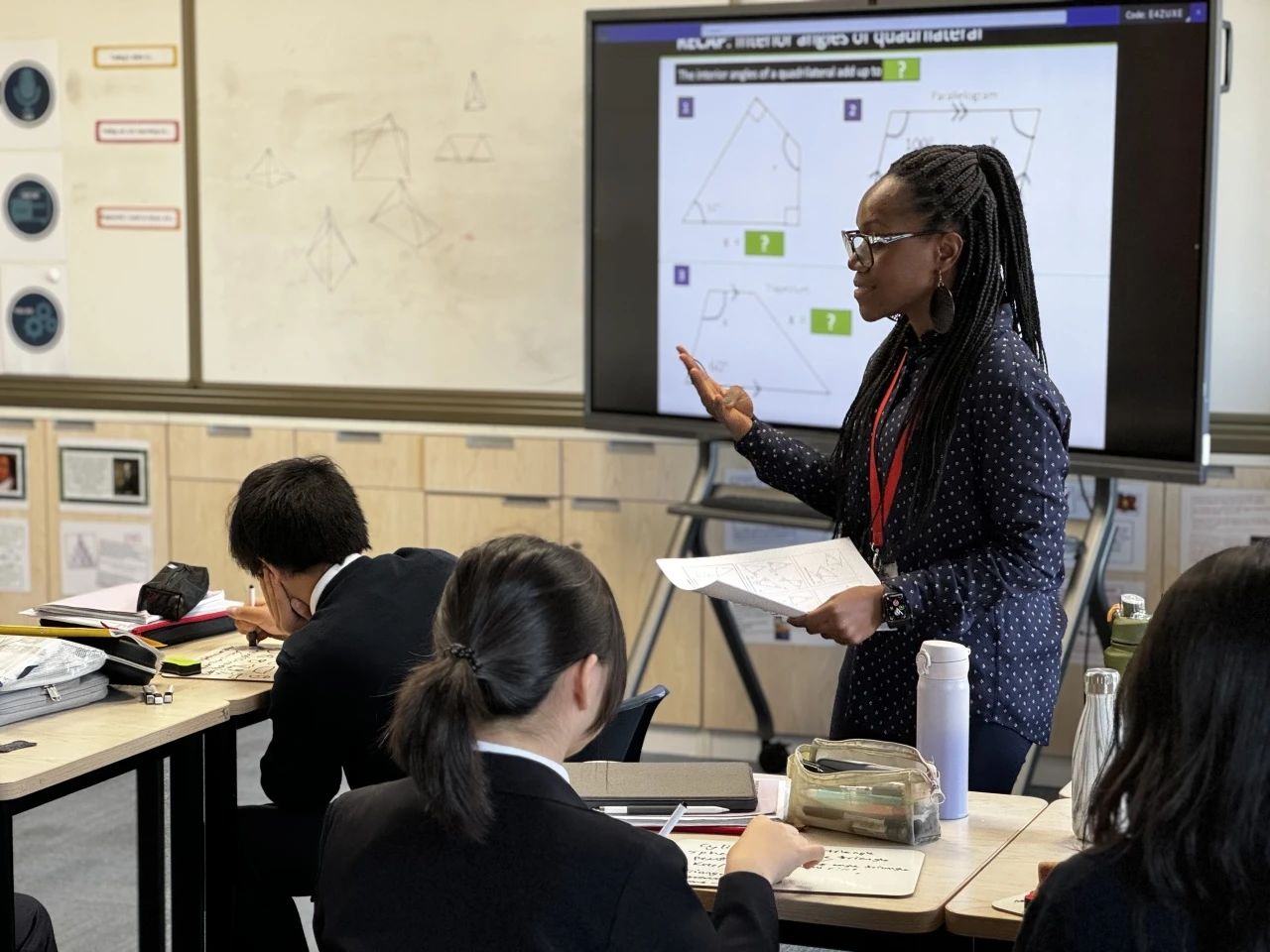
Could you briefly introduce the courses you teach at DCSZ?
I teach students ranging from Year 7 to Year 13. In Year 7, as students transition from Junior School, they focus on building upon their existing knowledge and connecting with forming new ideas. Year 8 continues this process by expanding and deepening their Mathematical understanding. During Years 7 and 8, we lay the foundation for IGCSE Maths.
In Year 9, students begin their IGCSE Maths journey. This phase extends from Year 9 to Year 11 and covers various topics such as numbers, algebra, probability, mensuration, trigonometry, statistics, etc. Students have the opportunity to pursue additional Maths qualifications, delving into more advanced concepts. The IGCSE Maths curriculum fosters a learning environment encouraging students to establish meaningful connections and transfer their knowledge to diverse contexts and disciplines.
In Year 12 and 13, students transition to the IB Maths curriculum, where they can choose between two distinct pathways: Analysis and approaches (AA) or Application and interpretations (AI). The AA pathway delves into calculus and advanced algebra, providing a solid foundation for students pursuing Maths or Science-related disciplines in higher education or careers. Conversely, the AI pathway emphasises statistics, catering to the needs of students interested in fields such as finance or humanities-related majors. A clear understanding of their academic and career aspirations enables students to embark on a personalised Maths journey that aligns with their goals and aspirations.
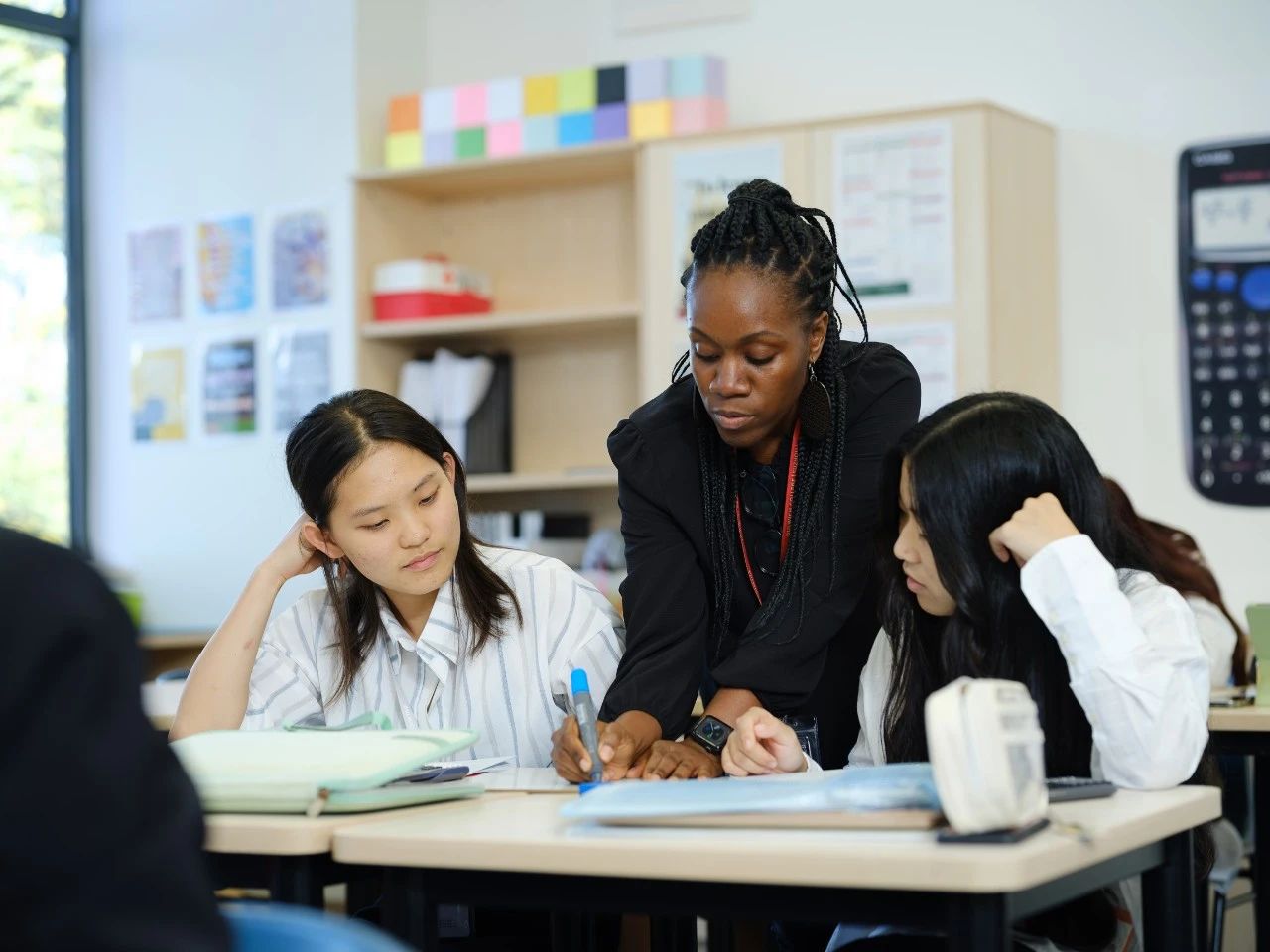
Thanks for that introduction! Please tell us about a unit or lesson that you taught recently.
One notable unit was the exploration of scientific notation with Year 9 students. During this unit, students delved into standard form/scientific notation and its effectiveness in representing large numbers. We specifically focused on utilising scientific notation to represent the vast distance between astronomical objects, e.g., Earth and the Moon. Throughout the unit, students engaged in a hands-on approach, using technology tools to visualise and reinforce their understanding of scientific notation. Interactive resources and real-world examples were incorporated to deepen their comprehension of this Mathsematical concept. Additionally, the unit provided a platform to nurture research and critical thinking skills as students explored and gathered information on astronomical distances and their relationship to scientific notation.
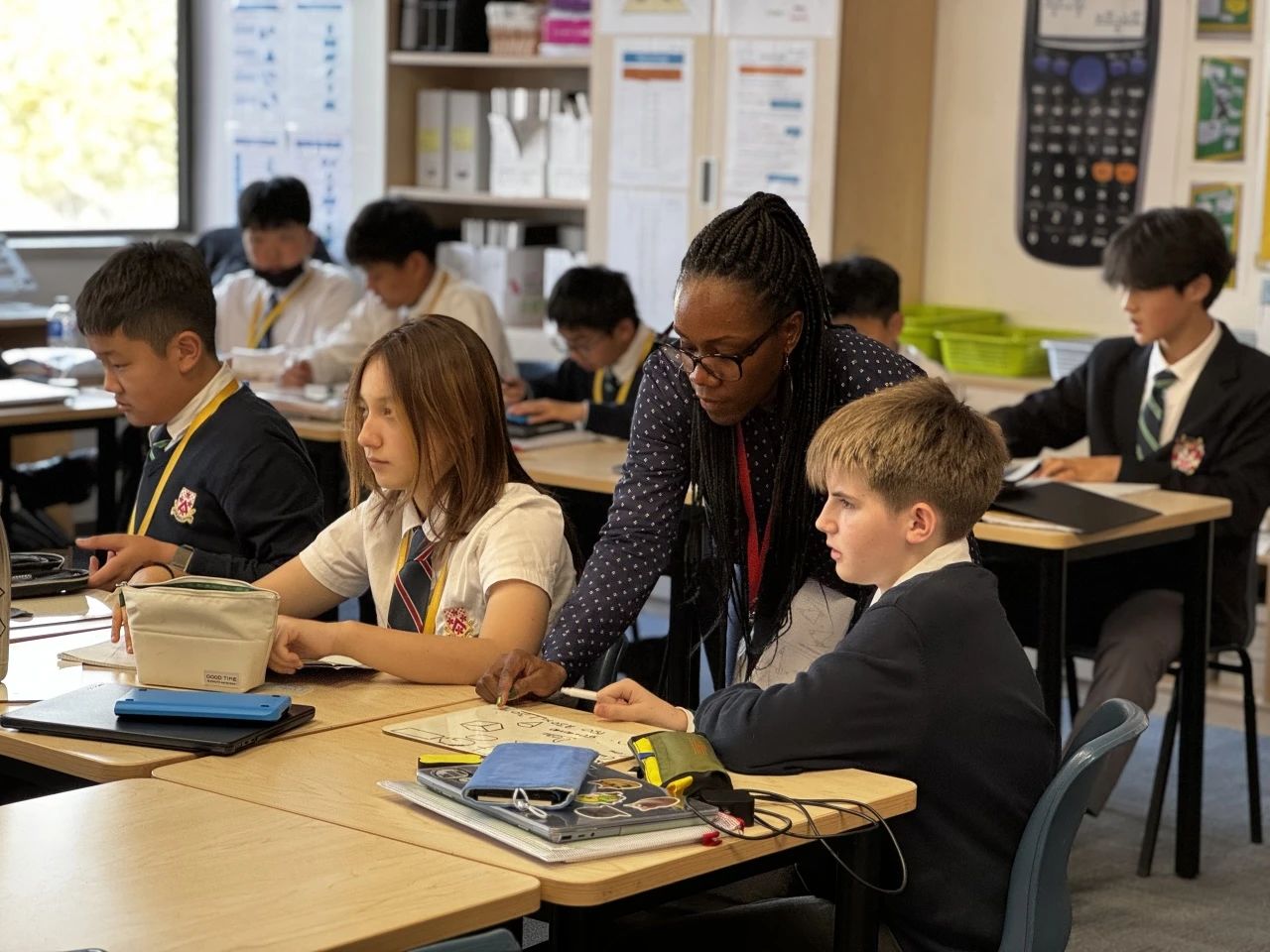
Beyond the subject learning, how did this also prepare students to Live Worldwise?
The skills students develop through mathematics are highly valuable. Maths helps to foster critical thinking, problem-solving, and logical reasoning abilities. Additionally, Maths is all around us and goes beyond just solving equations. Concepts like profit and loss, percentages, and financial literacy are rooted in Mathematical knowledge.
Moreover, these Maths skills have long-term benefits. In the future, individuals will encounter different challenges, and the problem-solving skills they learn from Maths will help them persevere, find solutions, and overcome obstacles. Students not only gain a strong mathematical foundation, but also practical skills that can be applied in various areas of life. This enables them to confidently approach complex problems, think critically, and make informed decisions, preparing them to navigate the ever-changing world successfully.
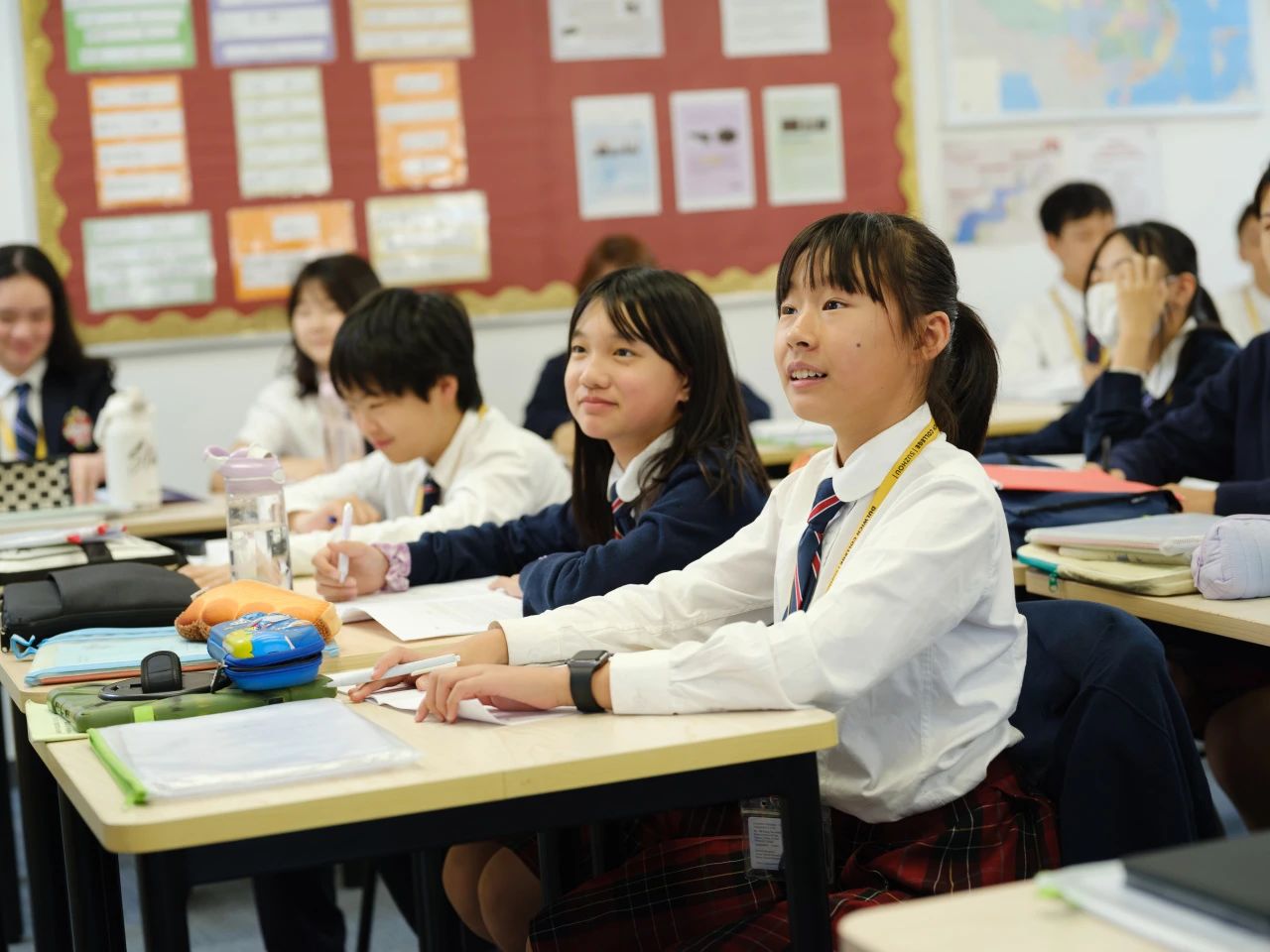
What strategies did you use to support students’ learning in this unit?
We prioritise personalised learning for our students by investing significant time in understanding each individual student, which allows us to identify their strengths and weaknesses. By recognising their unique needs, we can provide tailored assistance and address any difficulties they may encounter. Our classroom fosters open communication, encouraging students to engage with the material actively. We provide feedback and facilitate discussions to create an interactive learning environment.
We break down each piece of knowledge into manageable steps, ensuring that students understand the underlying reasoning and providing clarity on the next actions to take. This scaffolded approach facilitates comprehension and helps students build a solid foundation in mathematics. Additionally, to support multilingualism, we offer a Maths glossary that students can refer to understand key terminology. We also allow students to express their understanding by writing steps in their native language if they prefer.
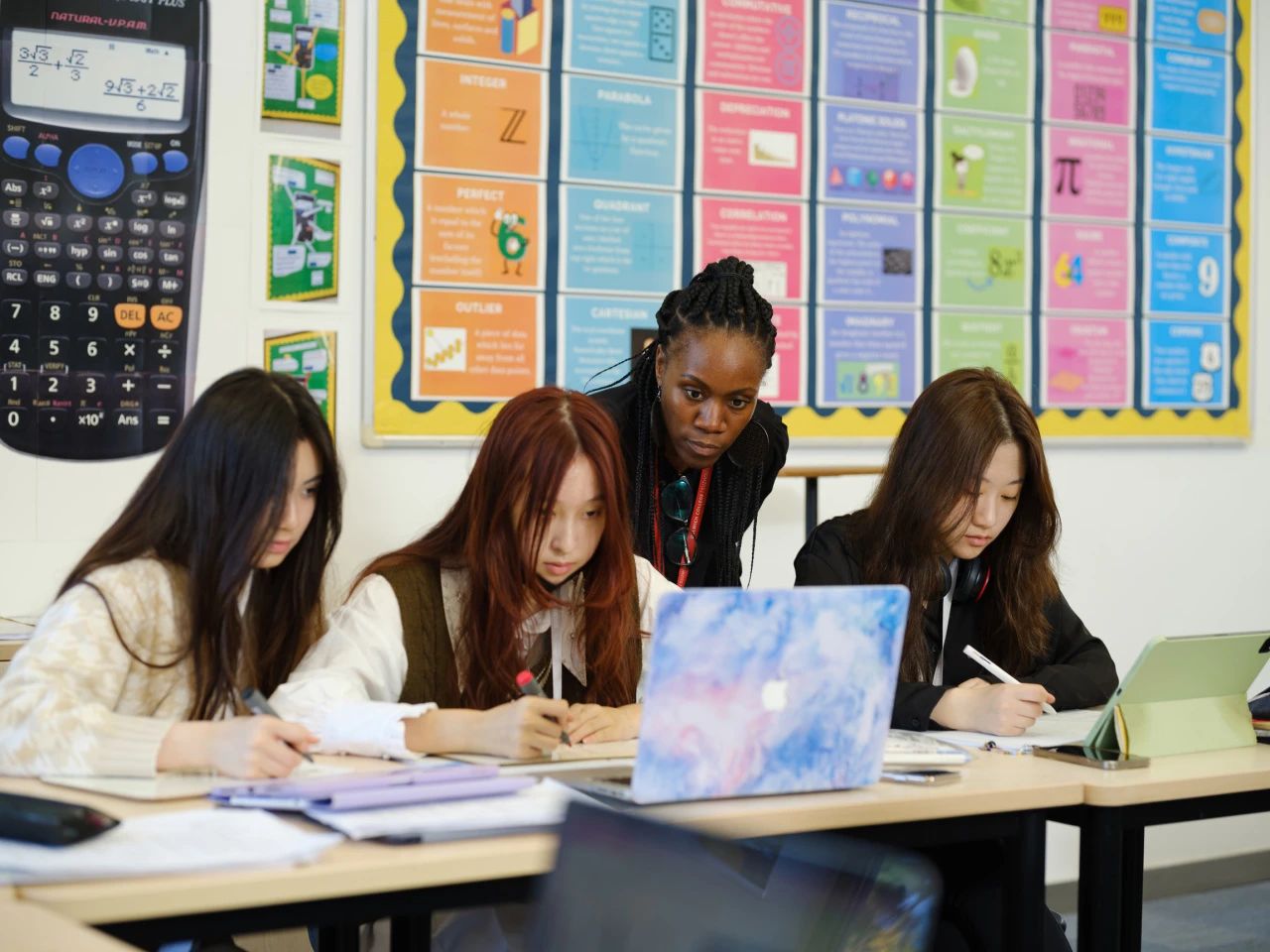
What can students do to keep improving their maths learning?
I encourage students to apply the knowledge they gain in Maths to real-life situations. This helps them understand the practical relevance of Maths and develop a genuine interest in the subject. Participating in external Maths competitions allows students to challenge themselves further and showcase their skills. As I mentioned, Maths is present in our daily lives, and we can gain insights into mathematical concepts from our experiences. It's important to let go of any fears associated with Maths and appreciate its beauty. Enjoy the journey of exploring and appreciating Mathematics!
Thanks to Ms Lutterodt for introducing her recent units and explaining what maths learning is like at DCSZ.






